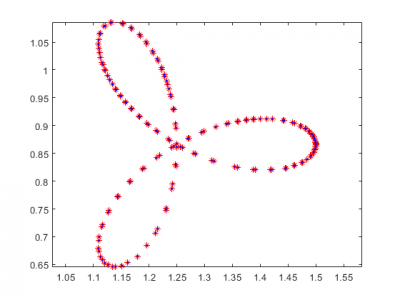Artificial Intelligence

Subjects are categorized into three groups based on office blood pressure threshold: Normal (N), Prehypertension (P), and Stage 1 Hypertension (S). Each group contains 100 subjects, and all records have duration of at least 8 minutes. This study uses sliding window with length of 1 second and step size of 1 second to segment records. PPG, ECG and BP yield 167432 segments, respectively. MAP, DBP, and SBP are defined as average, minimum, and maximum of each BP segment, respectively. Max-Min normalization is applied to PPG and ECG segments.
- Categories:
 548 Views
548 Views
This dataset comprises three benchmarks: Digits-5, PACS, anf office_caltech_10. Digits-5 is a set of handwritten digit images sampled from five domains: MNIST, MNIST-M, USPS, SynthDigits, and SVHN. All sample are images of numbers ranging from 0 to 9. PACS is composed of four different datasets, each representing a different visual domain: Photo, Art Painting, Cartoon, and Sketch. It contains 9,944 images, including 1,792 real photos, 2,048 art paintings, 2,344 cartoon images, and 2,760 sketches.
- Categories:
 149 Views
149 ViewsDevelopment and Evaluation of a Novel GPT-like Conditional Molecule Generator
This study presents the development and evaluation of a novel GPT-like conditional molecule generator designed to optimize the synthesis of chemical compounds with desirable properties. The model incorporates six pivotal physicochemical properties as conditions:
- Categories:
 71 Views
71 Views<h1>Development and Evaluation of a Novel GPT-like Conditional Molecule Generator</h1>
<p>
This study presents the development and evaluation of a novel GPT-like conditional molecule generator designed to optimize the synthesis of chemical compounds with desirable properties. The model incorporates six pivotal physicochemical properties as conditions:
</p>
- Categories:
 13 Views
13 ViewsDynamic nonlinear equations (DNEs) are essential for modeling complex systems in various fields due to their ability to capture real-world phenomena. However, the solution of DNEs presents significant challenges, especially in industrial settings where periodic noise often compromises solution fidelity. To tackle this challenge, we propose a novel approach called Periodic Noise Suppression Neural Dynamic (PNSND), which leverages the gradient descent approach and incorporates velocity compensation to overcome the limitations of the traditional Gradient Neural Dynamic (GND) model.
- Categories:
 224 Views
224 Views
This paper presents a comparative study of sampling methods within the FedHome framework, designed for personalized in-home health monitoring. FedHome leverages federated learning (FL) and generative convolutional autoencoders (GCAE) to train models on decentralized edge devices while prioritizing data privacy. A notable challenge in this domain is the class imbalance in health data, where critical events such as falls are underrepresented, adversely affecting model performance.
- Categories:
 196 Views
196 Views
Wild-SHARD presents a novel Human Activity Recognition (HAR) dataset collected in an uncontrolled, real-world (wild) environment to address the limitations of existing datasets, which often need more non-simulated data. Our dataset comprises a time series of Activities of Daily Living (ADLs) captured using multiple smartphone models such as Samsung Galaxy F62, Samsung Galaxy A30s, Poco X2, One Plus 9 Pro and many more. These devices enhance data variability and robustness with their varied sensor manufacturers.
- Categories:
 767 Views
767 ViewsHand contact data, reflecting the intricate behaviours of human hands during object operation, exhibits significant potential for analysing hand operation patterns to guide the design of hand-related sensors and robots, and predicting object properties. However, these potential applications are hindered by the constraints of low resolution and incomplete capture of the hand contact data.
- Categories:
 255 Views
255 Views
IRIC method's data and code are available at this URL.
These data links contain publicly available datasets that can be downloaded directly from their website. Our research on IRIC has validated the performance of the model through these publicly available datasets. Please continue to pay attention.
These data mainly include Emergency Event Data (ALARM) and Education Dataset (Junyi), which can be used for research in causal structure learning, knowledge tracking, and other areas.
- Categories:
 68 Views
68 Views


